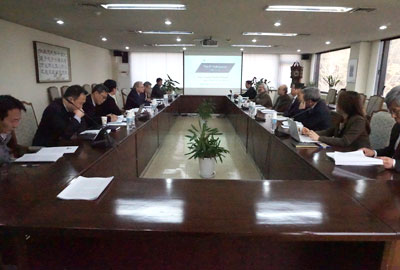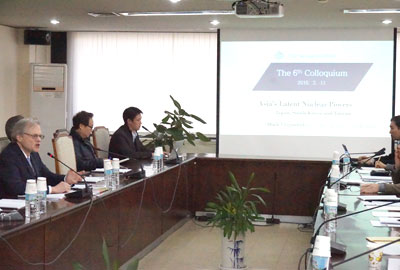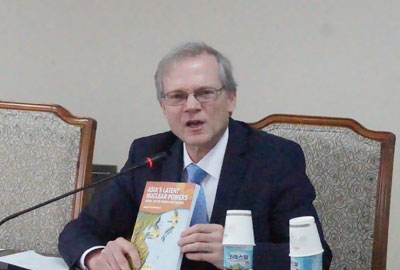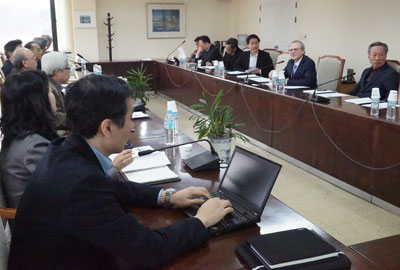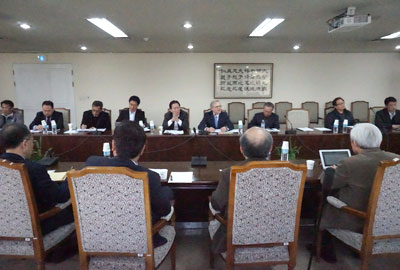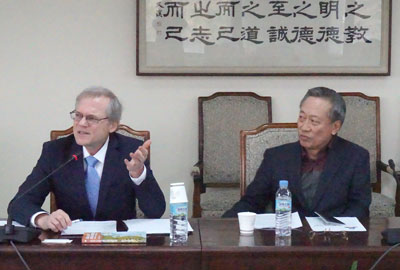The 6th Colloquium on Asia’s Latent Nuclear Powers: Japan, South Korea, and Taiwan
The Sejong Institute held its 6th Colloquium this year on Thursday, February 11, 2016, inviting Mark Fitzpatrick, a former U.S. diplomat and expert on nuclear non-proliferation and disarmament for discussion on the topic of his latest book titled, Asia’s Latent Nuclear Powers: Japan, South Korea, and Taiwan. Mr. Fitzpatrick who currently serves as executive director of the International Institute for Strategic Studies (IISS) and who heads the Non-Proliferation and Nuclear Policy Programme presented on the main findings of his book, arguing that even though the three democracies in Northeast Asia—Japan, South Korea, and Taiwan—continue to remain as latent and potential nuclear powers, so long as the U.S. security assurance and extended deterrence remain credible enough, the three democracies will not actively pursue nuclear weapons programs. The participants including Chairman Joon-woo Park, President Chang-soo Jin and other research fellows from the institute talked about the history of non-proliferation in Northeast Asia, motives for possible weapons-grade nuclear reprocessing and proliferation in the future, and the nuclear hedging strategy of the three Northeast Asian democracies. The discussants also had a vibrant debate on the merits and demerits, disadvantages and pitfalls of going nuclear in Northeast Asia, and how and whether the U.S. security assurance and guarantees continue to be credible enough in the face of North Korea’s fourth nuclear testing and what the international society considers to be another possible long-range missiles test by the North.
